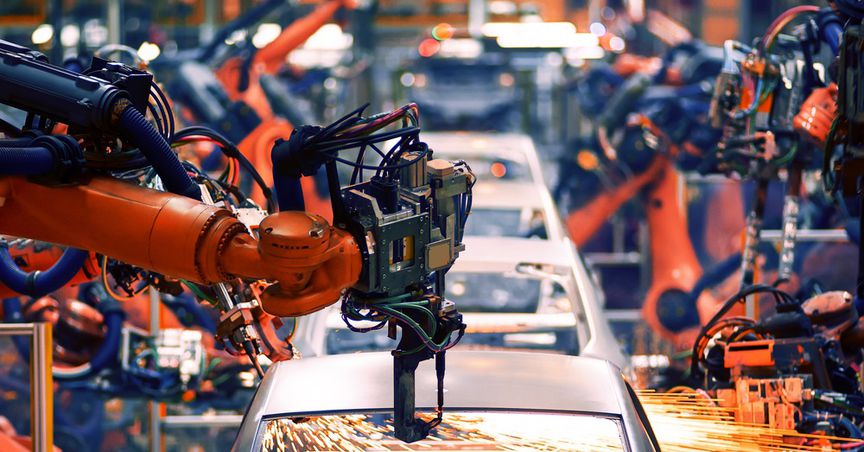Summary
- The Automobile industry in the UK faces major business disruption risk once the EU regulation is withdrawn on 31 December 2020, and new tariffs are imposed on components and spare parts imported from the EU.
- The industry has also been facing major supply chain disruptions because of the coronavirus pandemic, as it had abruptly put a halt on the import of machinery and components from China in the first couple of months into 2020.
- Significant output and job losses have taken place in the industry in the past eight months, with several businesses in the industry on the brink of collapse.
The Society for Motor Manufacturers and Traders (SMMT) in the United Kingdom has launched a major initiative to address one of the major issues concerning the automobile industry currently, called the "Safe harbour Scheme" it seeks to address the problems of supply chain disruptions that have crippled the industry since the beginning of the year. The Brexit talks between the UK and EU that were going on since the beginning of the year has also not yielded any results yet, with now the risk of a no-deal Brexit looming large.
It is to be noted here that the automobile industry in the UK has high hopes with the Brexit talks as disruptive cost and supply chain changes might take place in the industry post the year-end. It is worth mentioning here that when the UK formally pulled out of EU on 31 January 2020, both sides had agreed to give negotiations time till 31 December 2020 to clinch a deal. Constant disagreements on both sides on a variety of issues and the outbreak of the coronavirus pandemic led to the negotiations to be hampered in many ways. As of the end of September 2020, intense parleys are still going on to clinch a deal by the purported due date.
Safe Harbor Scheme and its features
The scheme seeks to collect the means of various companies so that together the supply chain problems of the industry can be fixed without breaking the anti-competition laws. Optimising the supply chains in the industry in this manner will help individual companies continue with their just- in- time (JIT) supply chain strategy which has helped them to stay cost-competitive all this while.
The Automobile industry has suffered massive production fall in the past five months. Though it has benefited a lot because of the furloughing scheme and the Coronavirus business interruption loan scheme (CIBIL) but the slow uptake of consumer demand and the continuing issues with the supply chains and other logistical issues have been hampering the recovery in the industry. The urgency to resolve these issues is also accentuated by the fact that the British automobile industry is one of the largest exporters of the country. The longer it is unable to cater to its international markets, the more the business it loses to its competitors. Other than that thousands of jobs continue to be at stake in the industry, and the risk of several of them withering away only increases as the October deadline of the withdrawal of the furloughing scheme comes near.
This scheme will also help suppliers who have been facing difficulty in ramping up their productions post the easing of the lockdown, by providing them with sufficient order flow to scale back business sustainability in the quickest possible time.
The problem of components supplies in the Automobile industry
As long the UK had been a part of the EU automobile companies it had developed component supply lines in other countries in the EU, taking advantage of their cheaper production dynamics. Over a period of time, this led to the British automobile industry gain an international competitive edge, mainly because of this. Now the EU single market regulation will cease to exist the cost structure in the industry will increase significantly, rendering it uncompetitive.
To deal with this issue, the industry did try to develop resources in far off places like China, but as recent experience would suggest, this is not a reliable alternative. Indigenous development of resources will take time, and the manufacturers are currently left high and dry to fend for themselves. The "Safe Harbor Scheme" thus will try to reduce the risk level in the industry to some extent so that its constituent businesses are able to sail through these turbulent times with minimal damage.
The disruptions caused by the coronavirus pandemic
The coronavirus pandemic not only caused supply chain bottlenecks in the industry but also caused the industry to totally shut down for a period of six weeks when the country went into lockdown. Even when the lockdown was reopened, the employee attendance was sluggish because of the fear of catching the infection and the stringent safety measures imposed by the government at workplaces. The demand for automobiles in the country had also become sluggish post the pandemic outbreak as people were postponing their expenditure decisions in the wake of uncertainty regarding jobs and livelihoods.
As the country moves into the final quarter of the year, there is now a greater risk of the pandemic making a resurgence as it did in the case of the SARS and the MERS. The automobile industry now faces a heightened risk of undoing all the recovery that has happened in the industry in the past few months should the resurgence actually materialise.
The biggest setback for the industry could come in the form of the no-deal Brexit. This will not only take away the largest supply base of this premier British industry but will also mark the withdrawal from its largest market.



